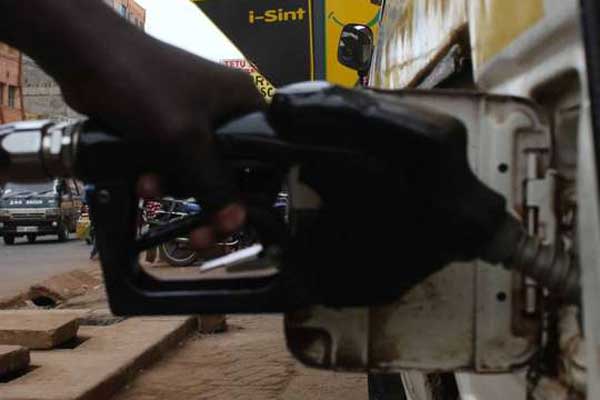An attendant fills a tank at a fuel station in Nyeri on June 14, 2016. FILE PHOTO | JOSEPH KANYI | NATION MEDIA GROUP The standoff between the government and taxpayers over the 16 per cent value added tax (VAT) on petroleum products since September 1 is a good opportunity for dialogue on collection and spending of taxes.
While the debate is heavily against the government’s intention to raise more revenue from taxes, the dialogue should be on whether the tax system is efficient, fair and equitable.
The greatest point of contention is that fuel VAT would have a transmission effect on all economic activities. Producers and transporters of goods and suppliers of services would pass it on to consumers, implying that there’s a strong possibility that prices would rise following the higher fuel costs.
HIGHER FUEL PRICES
A cost spiral triggered by higher fuel prices would be difficult to manage and could negatively affect the economy.
While government policy is focused on economic growth and job creation, dearer fuel would dampen economic growth prospects, cause inflation and constrain productive sectors from creating jobs.
From a planning perspective, the greater issue of concern should be how many individuals and firms pay taxes.
A good tax system should, ideally, have a wide base. The big question then is: How many people and firms are in the Kenya Revenue Authority (KRA) tax net and, more importantly, how many potential taxpayers are outside the bracket? The personal income tax base depends on how many pay tax on their incomes and file returns to the KRA. The estimate is just about three million — which would imply that only six per cent of Kenyans support the entire population of 49 million.
DEPENDENCY BURDEN
This is a huge dependency burden, and the risk to the government is that if the number of the few taxpayers goes down (by job losses when firms retrench or shut down, or by natural attrition), there would be a corresponding fall in tax revenue.
The same applies to corporate taxpayers. While it is easy for KRA to net large and medium-sized taxpayers, it is more difficult for the agency to track the large number of small- and medium-sized enterprises capable of paying taxes that haven’t been captured.The second critical statistic is how much each of the categories of tax contributes to the total tax revenue.The budget statement for 2018/2019 published by the National Treasury shows […]
